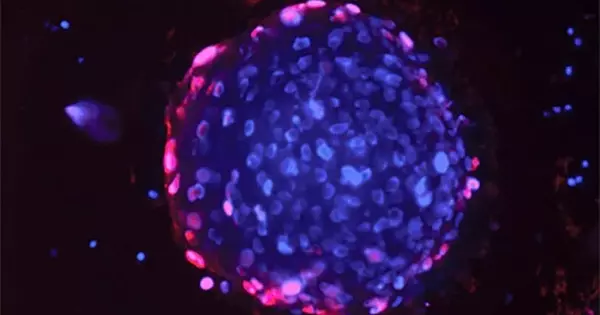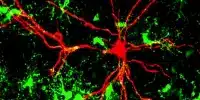Boosting the body’s anti-viral immune response has the potential to eliminate aging cells, according to some recent research. As we age, our immune system tends to weaken, making us more susceptible to infections and diseases. This can also lead to the accumulation of senescent cells in our bodies, which are damaged or dysfunctional cells that no longer divide or contribute to tissue repair but continue to persist and promote inflammation and damage to neighboring cells.
Aging cells express a protein that is produced by the human cytomegalovirus and is targeted by the body’s immune cells. Harnessing the immune response to this protein could provide numerous health benefits as we age.
Senescent cells, or cells that stop dividing but do not die, can accumulate in the body over time and fuel chronic inflammation, which contributes to conditions like cancer and degenerative disorders.
In mice, eliminating senescent cells from aging tissues can restore tissue balance and lead to an increased healthy lifespan. Now a team led by investigators at Massachusetts General Hospital (MGH), a founding member of Mass General Brigham (MGB), has found that the immune response to a virus that is ubiquitously present in human tissues can detect and eliminate senescent cells in the skin.
Our study has revealed that immune responses to human cytomegalovirus contribute to maintaining the balance of aging organs. Most of us are infected with human cytomegalovirus, and our immune system has evolved to eliminate cells, including senescent cells, that upregulate the expression of cytomegalovirus antigens.
Shawn Demehri
The researchers analyzed young and old human skin samples for the study, which was published in Cell, to learn more about the clearance of senescent cells in human tissue. The researchers discovered more senescent cells in old skin samples than in young skin samples. However, in samples from elderly people, the number of senescent cells did not increase with age, implying that some sort of mechanism kicks in to keep them in check.
Experiments suggested that as a person ages, certain immune cells known as killer CD4+ T cells are responsible for preventing the growth of senescent cells. Indeed, higher levels of killer CD4+ T cells in tissue samples were linked to lower levels of senescent cells in elderly skin.

When the researchers looked at how killer CD4+ T cells keep senescent cells in check, they discovered that aging skin cells express a protein, or antigen, produced by human cytomegalovirus, a common herpesvirus that causes lifelong latent infection in most people with no symptoms. Senescent cells that express this protein become targets for attack by killer CD4+ T cells.
“Our study has revealed that immune responses to human cytomegalovirus contribute to maintaining the balance of aging organs,” says senior author Shawn Demehri, MD, PhD, director of the High Risk Skin Cancer Clinic at MGH and an associate professor of Dermatology at Harvard Medical School. “Most of us are infected with human cytomegalovirus, and our immune system has evolved to eliminate cells, including senescent cells, that upregulate the expression of cytomegalovirus antigens.”
These findings, which highlight a beneficial function of viruses in our bodies, could have a wide range of clinical implications. “Our research enables a new therapeutic approach to eliminate aging cells by boosting the anti-viral immune response,” Demehri explains. “We want to use the immune response to cytomegalovirus as a therapy to eliminate senescent cells in diseases such as cancer, fibrosis, and degenerative diseases.”
According to Demehri, the research could lead to advancements in cosmetic dermatology, such as the development of new treatments to make skin look younger.













